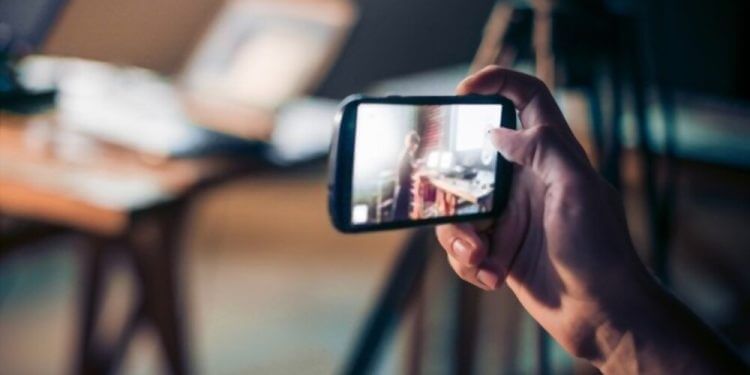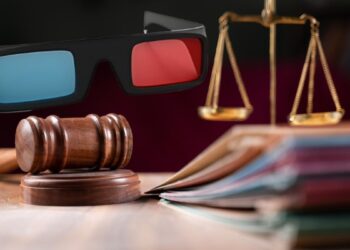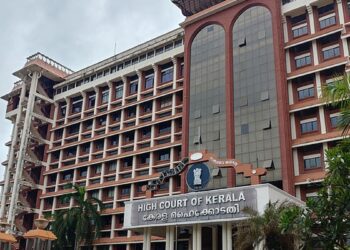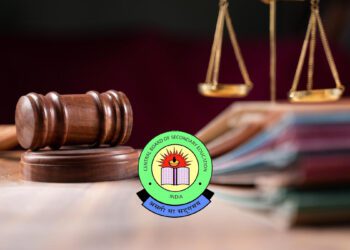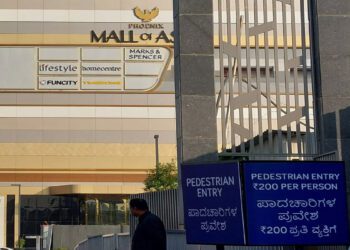Bengaluru, Video Recording is an optional medium available to anyone who can record anything in the present social world without hurting the other person’s privacy, which is not void by the law. The view of the context is that the video recording carried out in the state’s government offices, where the Public has free access to such Public representing officials, can be a reverse issue to the Public itself for just recording a video of such offices.
The Public usually believes that recording carried out in the public office is not allowed, and it amounts to wrong or a crime; where this is the first thing that strikes the mind of the Public always when they enter into a situation of recording in public offices, but it will be in the reverse state, where in public places like park, roads, so on. Do people believe that arguments, raising of voices, verbal abuse, fights, etc., will happen only in public places between two unknown individuals in an open or closed space? No. Even Government offices (public offices) face these hurdles, where the common man can’t access to terms of recording it, as it is assumed in people’s minds that it is wrong to do in such offices, where the hands of the Public are tied due to the repercussive action taken by that authority towards such recordings, using their power and which will cause issues to that person recording and supporting, so usually public tend to shut their eyes towards any fellow public is in that unfair situation.
“The Recording of CCTV visuals in the Public Office is a must and should access, which is available to the Public on demand with proper reasons stated to those Public office officials”, specified by The National Human Rights Commission (NHRC) in The Supreme Court and issued directions to the State authorities for making it available to those in need of it. But that availability is still unclear due to the procedures of procuring the same, Most of the old scenarios state that the recording in Public (Government) offices terms to violation of the Official Secrets Act, 1923, where it amounts to secret, privacy and confidentiality of the information’s of Government offices in terms of National Security.
In this century, the Act only covers top-end government offices such as Defense, Home Department, ISRO, BARC and other highly sophisticated government agencies dealing with National Security, where common public access is restricted. Does the Act expand to all Government (Public) offices where the Public is a frequent visitor? There is no clarity about it from any of the government bodies, but they will only quote this Act to avoid the recordings.
Newly Bombay High Court Judgment explicitly said that “The Official Secrets Act, 1923 appears to have been malafidely invoked by the concerned Police” the court had observed and imposed a penalty of 25000/- on the Police officials who registered the FIR under the said Act having the intent to deceive the Petitioner. People are allowed to record in the Police station (A public Office) unless it conflicts with National Security and fulfils the ingredient terms of the Official Secrets Act 1923.
A locally based NGO, Rise UP for Rights, filed a Complaint to Lokayukta Court and other Government offices for the conduct expressed by officials in their scenario, for no reason where an activist of their NGO was stopped by Local Police while recording in the Public office of the Sub Registrar, where the phones were snatched by the Police official as per the orders by the Sub Registrar whilst recording in Public office.
A Member of Rise UP NGO, Mr Manu, said “The action done by the Police officer is not proper as the Sub Registrar office was not responding to our voices and were partially not working in terms of the wellbeing of the Public, we were forced to do a recording as such to avoid other abuses, where a Public official generally use the term of obstructing their duty when we question them. We were forced to record in that premises due to the unfavourable scenarios expressed by the Public Official, where there were no CCTV cameras present in that premises”.
Spokesperson RiseUP NGO, Mr Hemant, a Social Activist, addressed that “we will use all means to get clarity on this matter, where the Public is allowed to do a video recording in Government offices (Public). It is an essential need for each Public to get a proper answer for their issues, rather than neglecting, giving a lame answer and creating fear in the Public by using their authority; if it is recorded, then the misuse of power will be stopped by the officials in all means, The freedom of speech should be liberal and easy access instead of calling it as privacy in Public offices”.
The National Human Rights Commission has stated that human rights should always be protected, conserved and served to the people in need, where in requirement of this, the miss use of power has to be captured in all manner, due the Public is entitled in all terms of protection towards their human rights and the person who has suffered unnecessary plights by the officials in misuse of their power in such public offices need to be captured by the Public itself.


